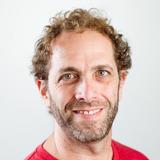The Theoretical Physics Group in the Department of Mathematics is at the international forefront of research in string and M-theory, black holes, conformal field theory, supersymmetry, integrability, and other fundamental branches of modern theoretical physics. The group has a highly interactive research culture with multiple weekly activities including seminars, journal clubs, and lecture series. It regularly organises and hosts conferences and workshops with leading researchers from around the world.
The group is in close contact with the other theoretical physicists at King's, including the Disordered Systems Group and the Theoretical Particle Physics & Cosmology Group in the Department of Physics. Together they make King's a powerhouse in all branches of theoretical physics.
Master's and PhD programme
The group nourishes the next generation of theoretical physicists by running the MSc Theoretical Physics. It also has a vibrant cohort of PhD students. For PhD positions within the Theoretical Physics group, please submit an application for Applied Mathematics Research: Theoretical Physics.
Seminar series
Seminars are normally held on Wednesdays at 13:15. Details of upcoming seminars can be found on the Triangle Seminars page. The current organisers are Andreas Stergiou (andreas.stergiou@kcl.ac.uk) and Jeremy Mann (jeremy.mann@kcl.ac.uk).
The Theoretical Physics Journal Club is organised by Biswajit Sahoo (biswajit.sahoo@kcl.ac.uk) and Kausik Ghosh (kausik.ghosh@kcl.ac.uk).
Group lead
Contact us
The group can be found on Instagram at KCLStrings and contributions are also made to the London Integrability YouTube channel.

